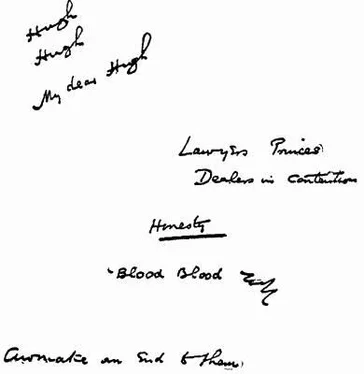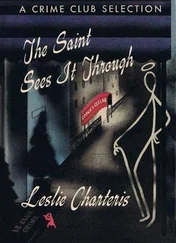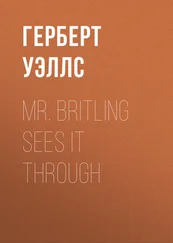Herbert Wells - Mr. Britling Sees It Through
Здесь есть возможность читать онлайн «Herbert Wells - Mr. Britling Sees It Through» весь текст электронной книги совершенно бесплатно (целиком полную версию без сокращений). В некоторых случаях можно слушать аудио, скачать через торрент в формате fb2 и присутствует краткое содержание. Жанр: Классическая проза, на английском языке. Описание произведения, (предисловие) а так же отзывы посетителей доступны на портале библиотеки ЛибКат.
- Название:Mr. Britling Sees It Through
- Автор:
- Жанр:
- Год:неизвестен
- ISBN:нет данных
- Рейтинг книги:4 / 5. Голосов: 1
-
Избранное:Добавить в избранное
- Отзывы:
-
Ваша оценка:
- 80
- 1
- 2
- 3
- 4
- 5
Mr. Britling Sees It Through: краткое содержание, описание и аннотация
Предлагаем к чтению аннотацию, описание, краткое содержание или предисловие (зависит от того, что написал сам автор книги «Mr. Britling Sees It Through»). Если вы не нашли необходимую информацию о книге — напишите в комментариях, мы постараемся отыскать её.
Mr. Britling Sees It Through — читать онлайн бесплатно полную книгу (весь текст) целиком
Ниже представлен текст книги, разбитый по страницам. Система сохранения места последней прочитанной страницы, позволяет с удобством читать онлайн бесплатно книгу «Mr. Britling Sees It Through», без необходимости каждый раз заново искать на чём Вы остановились. Поставьте закладку, и сможете в любой момент перейти на страницу, на которой закончили чтение.
Интервал:
Закладка:
But the idea of a peculiar malignity in the German quality as a key to the broad issue of the war was even less satisfactory and less permanent in Mr. Britling's mind than his first crude opposition of militarism and a peaceful humanity as embodied respectively in the Central Powers and the Russo-Western alliance. It led logically to the conclusion that the extermination of the German peoples was the only security for the general amiability of the world, a conclusion that appealed but weakly to his essential kindliness. After all, the Germans he had met and seen were neither cruel nor hate-inspired. He came back to that obstinately. From the harshness and vileness of the printed word and the unclean picture, he fell back upon the flesh and blood, the humanity and sterling worth, of—as a sample—young Heinrich.
Who was moreover a thoroughly German young German—a thoroughly Prussian young Prussian.
At times young Heinrich alone stood between Mr. Britling and the belief that Germany and the whole German race was essentially wicked, essentially a canting robber nation. Young Heinrich became a sort of advocate for his people before the tribunal of Mr. Britling's mind. (And on his shoulder sat an absurdly pampered squirrel.) s fresh, pink, sedulous face, very earnest, adjusting his glasses, saying "Please," intervened and insisted upon an arrest of judgment....
Since the young man's departure he had sent two postcards of greeting directly to the "Familie Britling," and one letter through the friendly intervention of Mr. Britling's American publisher. Once also he sent a message through a friend in Norway. The postcards simply recorded stages in the passage of a distraught pacifist across Holland to his enrolment. The letter by way of America came two months later. He had been converted into a combatant with extreme rapidity. He had been trained for three weeks, had spent a fortnight in hospital with a severe cold, and had then gone to Belgium as a transport driver—his father had been a horse-dealer and he was familiar with horses. "If anything happens to me," he wrote, "please send my violin at least very carefully to my mother." It was characteristic that he reported himself as very comfortably quartered in Courtrai with "very nice people." The niceness involved restraints. "Only never," he added, "do we talk about the war. It is better not to do so." He mentioned the violin also in the later communication through Norway. Therein he lamented the lost fleshpots of Courtrai. He had been in Posen, and now he was in the Carpathians, up to his knees in snow and "very uncomfortable...."
And then abruptly all news from him ceased.
Month followed month, and no further letter came.
"Something has happened to him. Perhaps he is a prisoner...."
"I hope our little Heinrich hasn't got seriously damaged.... He may be wounded...."
"Or perhaps they stop his letters.... Very probably they stop his letters."
§ 5
Mr. Britling would sit in his armchair and stare at his fire, and recall conflicting memories of Germany—of a pleasant land, of friendly people. He had spent many a jolly holiday there. So recently as 1911 all the Britling family had gone up the Rhine from Rotterdam, had visited a string of great cities and stayed for a cheerful month of sunshine at Neunkirchen in the Odenwald.
The little village perches high among the hills and woods, and at its very centre is the inn and the linden tree and—Adam Meyer. Or at least Adam Meyer was there. Whether he is there now, only the spirit of change can tell; if he live to be a hundred no friendly English will ever again come tramping along by the track of the Blaue Breiecke or the Weisse Streiche to enjoy his hospitality; there are rivers of blood between, and a thousand memories of hate....
It was a village distended with hospitalities. Not only the inn but all the houses about the place of the linden tree, the shoe-maker's, the post-mistress's, the white house beyond, every house indeed except the pastor's house, were full of Adam Meyer's summer guests. And about it and over it went and soared Adam Meyer, seeing they ate well, seeing they rested well, seeing they had music and did not miss the moonlight—a host who forgot profit in hospitality, an inn-keeper with the passion of an artist for his inn.
Music, moonlight, the simple German sentiment, the hearty German voices, the great picnic in a Stuhl Wagen, the orderly round games the boys played with the German children, and the tramps and confidences Hugh had with Kurt and Karl, and at last a crowning jollification, a dance, with some gipsy musicians whom Mr. Britling discovered, when the Germans taught the English various entertaining sports with baskets and potatoes and forfeits and the English introduced the Germans to the licence of the two-step. And everybody sang "Britannia, Rule the Waves," and "Deutschland, Deutschland über Alles," and Adam Meyer got on a chair and made a tremendous speech more in dialect than ever, and there was much drinking of beer and sirops in the moonlight under the linden....
Afterwards there had been a periodic sending of postcards and greetings, which indeed only the war had ended.
Right pleasant people those Germans had been, sun and green-leaf lovers, for whom "Frisch Auf" seemed the most natural of national cries. Mr. Britling thought of the individual Germans who had made up the assembly, of the men's amusingly fierce little hats of green and blue with an inevitable feather thrust perkily into the hatband behind, of the kindly plumpnesses behind their turned-up moustaches, of the blonde, sedentary women, very wise about the comforts of life and very kind to the children, of their earnest pleasure in landscape and Art and Great Writers, of their general frequent desire to sing, of their plasticity under the directing hands of Adam Meyer. He thought of the mellow south German landscape, rolling away broad and fair, of the little clean red-roofed townships, the old castles, the big prosperous farms, the neatly marked pedestrian routes, the hospitable inns, and the artless abundant Aussichtthurms....
He saw all those memories now through a veil of indescribable sadness—as of a world lost, gone down like the cities of Lyonesse beneath deep seas....
Right pleasant people in a sunny land! Yet here pressing relentlessly upon his mind were the murders of Visé, the massacres of Dinant, the massacres of Louvain, murder red-handed and horrible upon an inoffensive people, foully invaded, foully treated; murder done with a sickening cant of righteousness and racial pretension....
The two pictures would not stay steadily in his mind together. When he thought of the broken faith that had poured those slaughtering hosts into the decent peace of Belgium, that had smashed her cities, burnt her villages and filled the pretty gorges of the Ardennes with blood and smoke and terror, he was flooded with self-righteous indignation, a self-righteous indignation that was indeed entirely Teutonic in its quality, that for a time drowned out his former friendship and every kindly disposition towards Germany, that inspired him with destructive impulses, and obsessed him with a desire to hear of death and more death and yet death in every German town and home....
§ 6
It will be an incredible thing to the happier reader of a coming age—if ever this poor record of experience reaches a reader in the days to come—to learn how much of the mental life of Mr. Britling was occupied at this time with the mere horror and atrocity of warfare. It is idle and hopeless to speculate now how that future reader will envisage this war; it may take on broad dramatic outlines, it may seem a thing, just, logical, necessary, the burning of many barriers, the destruction of many obstacles. Mr. Britling was too near to the dirt and pain and heat for any such broad landscape consolations. Every day some new detail of evil beat into his mind. Now it would be the artless story of some Belgian refugee. There was a girl from Alost in the village for example, who had heard the fusillade that meant the shooting of citizens, the shooting of people she had known, she had seen the still blood-stained wall against which two murdered cousins had died, the streaked sand along which their bodies had been dragged; three German soldiers had been quartered in her house with her and her invalid mother, and had talked freely of the massacres in which they had been employed. One of them was in civil life a young schoolmaster, and he had had, he said, to kill a woman and a baby. The girl had been incredulous. Yes, he had done so! Of course he had done so! His officer had made him do it, had stood over him. He could do nothing but obey. But since then he had been unable to sleep, unable to forget.
Читать дальшеИнтервал:
Закладка:
Похожие книги на «Mr. Britling Sees It Through»
Представляем Вашему вниманию похожие книги на «Mr. Britling Sees It Through» списком для выбора. Мы отобрали схожую по названию и смыслу литературу в надежде предоставить читателям больше вариантов отыскать новые, интересные, ещё непрочитанные произведения.
Обсуждение, отзывы о книге «Mr. Britling Sees It Through» и просто собственные мнения читателей. Оставьте ваши комментарии, напишите, что Вы думаете о произведении, его смысле или главных героях. Укажите что конкретно понравилось, а что нет, и почему Вы так считаете.






